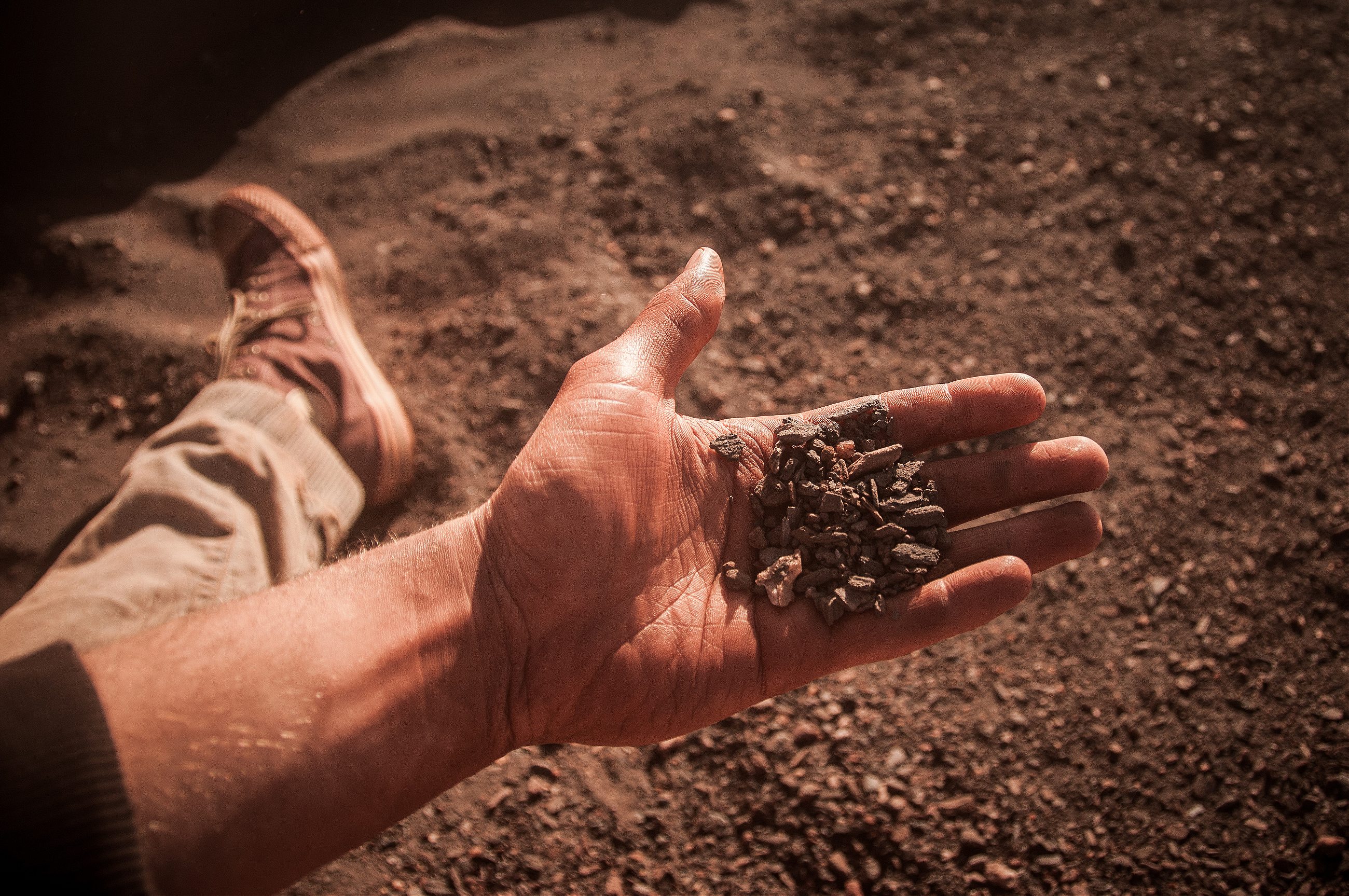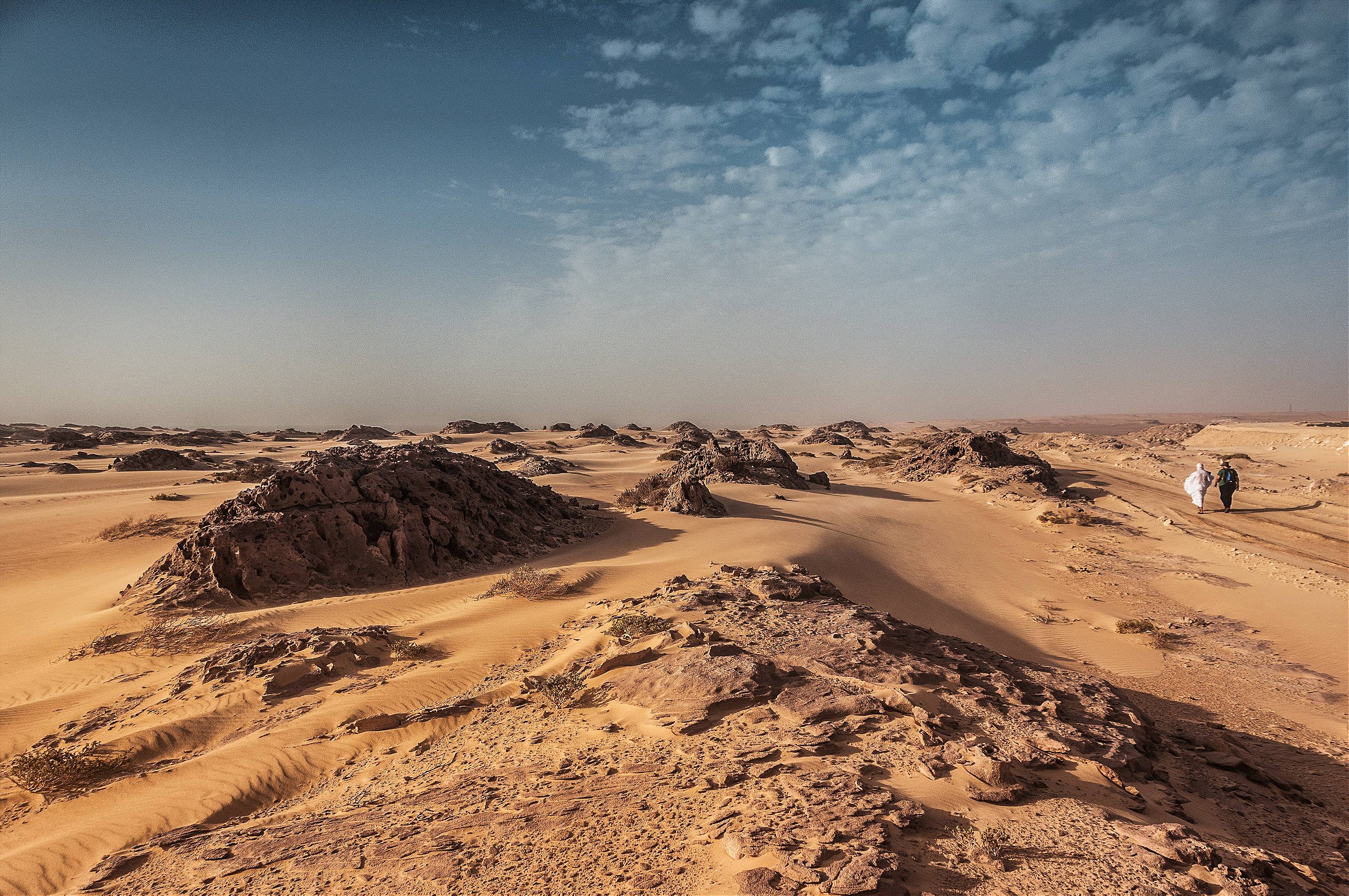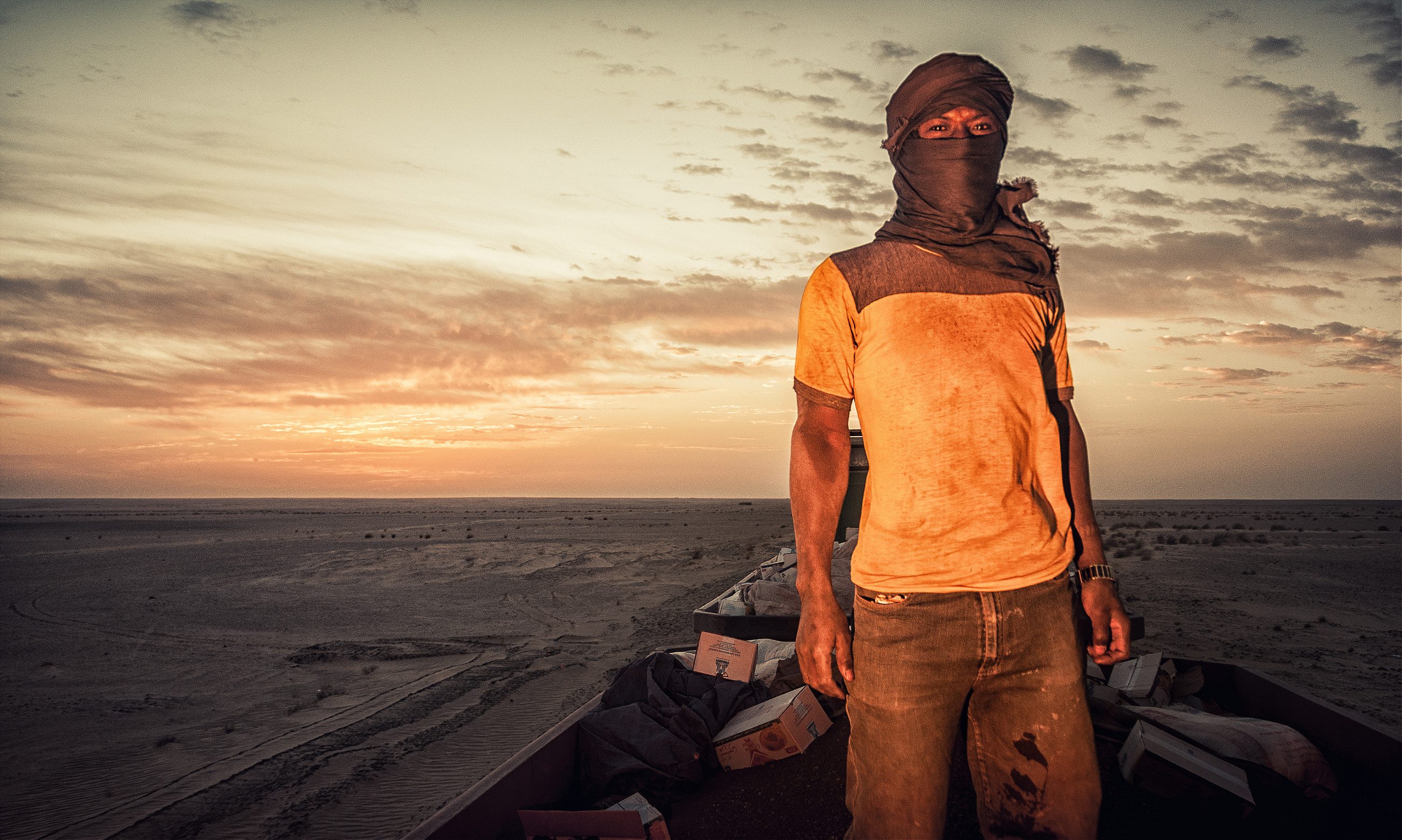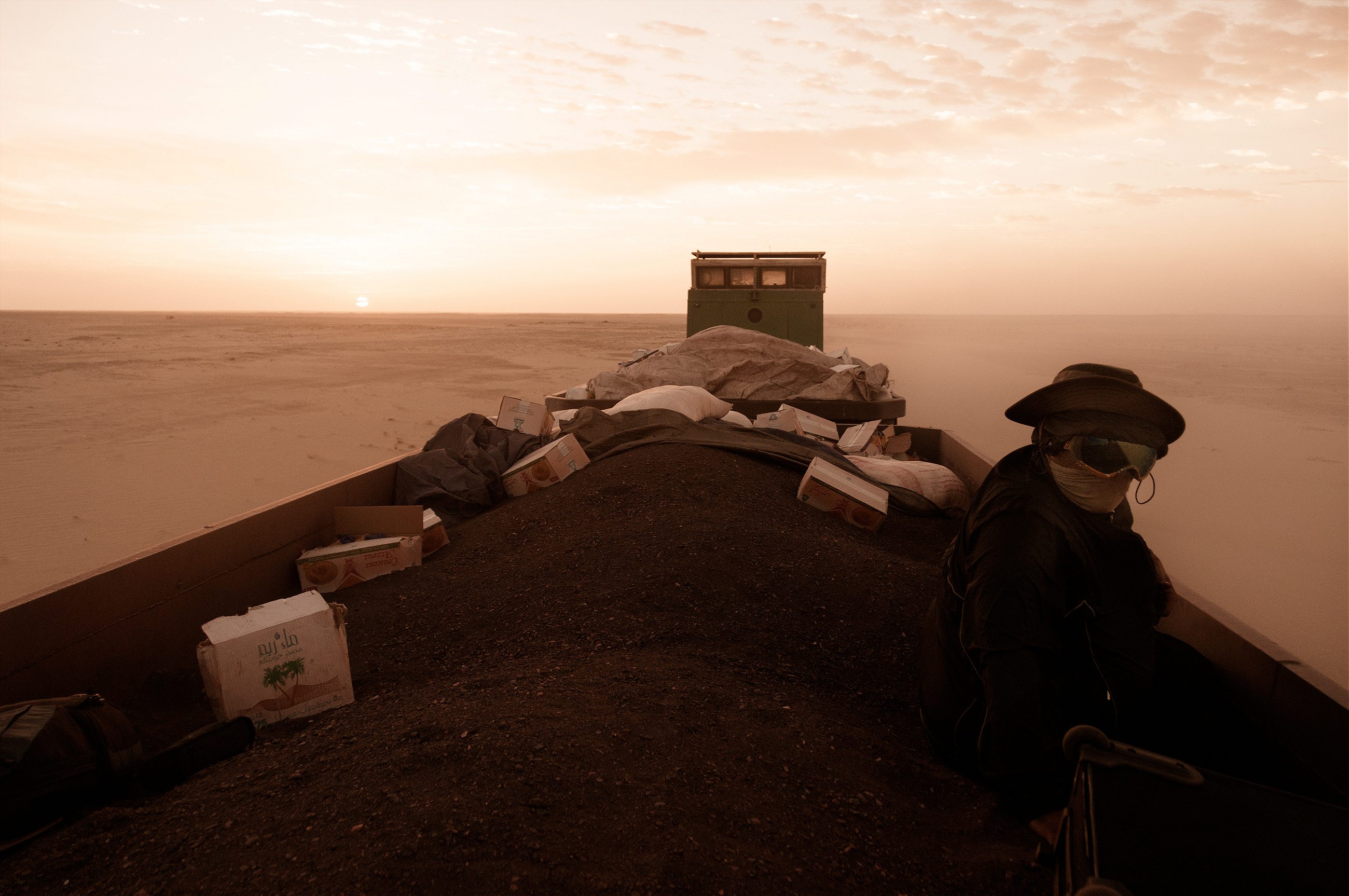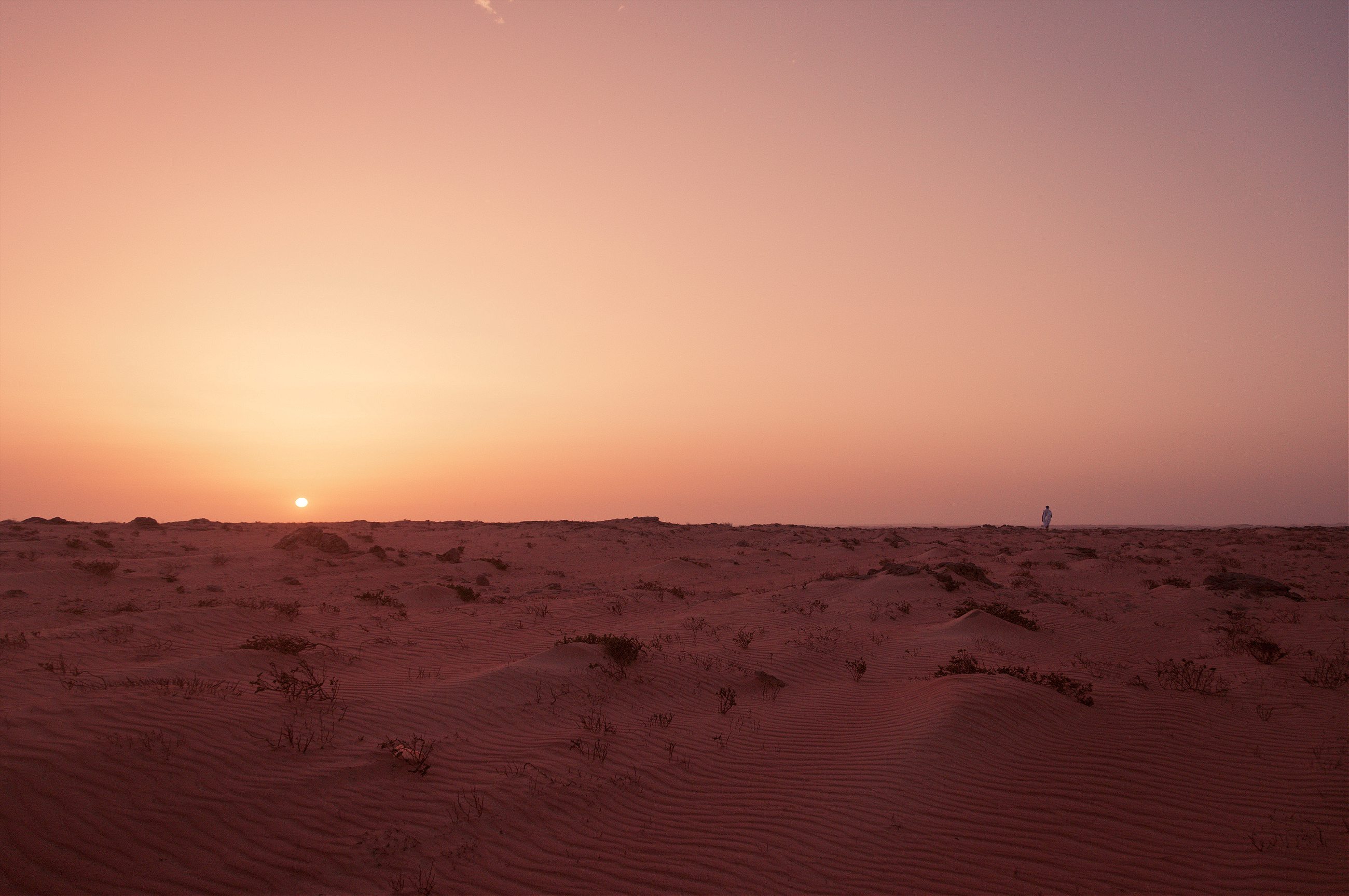Photographer Mike Huniewicz travels across Mauritania in a wagon filled with iron ore.
Finally, there it was. When we climbed to the top of the wagon, tired but excited, unsteady as our feet sunk in the heap of iron that filled it to the brim, my friend Ammar and I congratulated each other, our faces lit by the faint glow of each other’s headlamp.
It was almost midnight. After weeks of meticulous planning, we had finally embarked on the longest cargo train—trains on this single rail line can be up to 2.5 km long—in the world. From the middle of the Sahara to the refreshing, cool breeze at the coast of the Atlantic, it was going to be a strange ride.
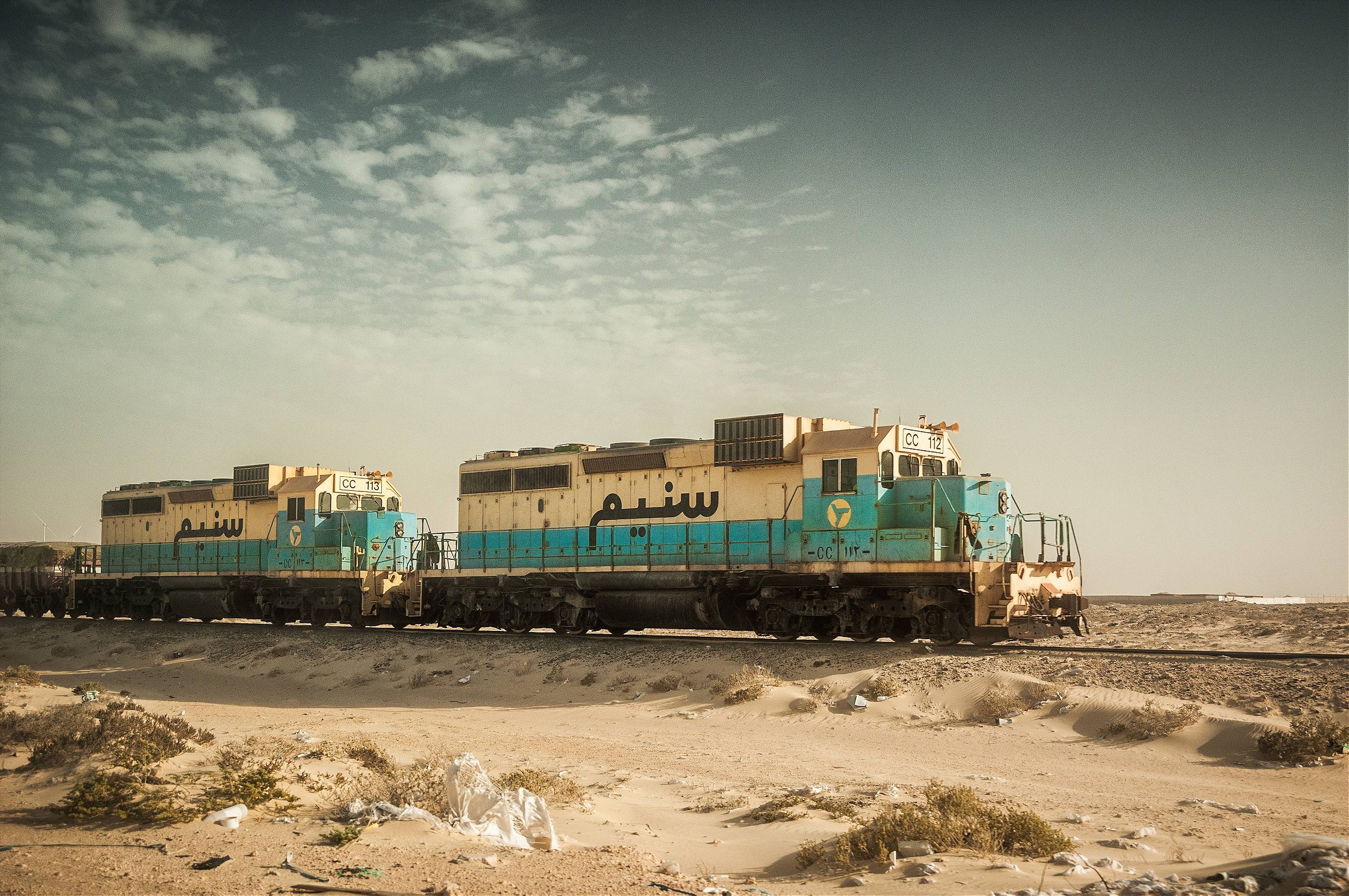
The train had been late, and we had spent what felt like hours in complete darkness and sepulchral silence, after a seemingly mute driver had dropped us off in the middle of nowhere in Mauritania. We just stood there with our bags, thinking of scorpions and snakes, and looking ridiculously out of place. In the car, before we lost reception, I had texted my friend back in England: “we are being taken into the desert by an unknown driver, heading east.” It all seemed reasonably mad.
At one point, a little light at the end of the tunnel appeared. It steadily grew bigger and bigger, and turned out to be our train, trundling towards us. Then, other cars brought other people. Everything was going to be fine, after all.
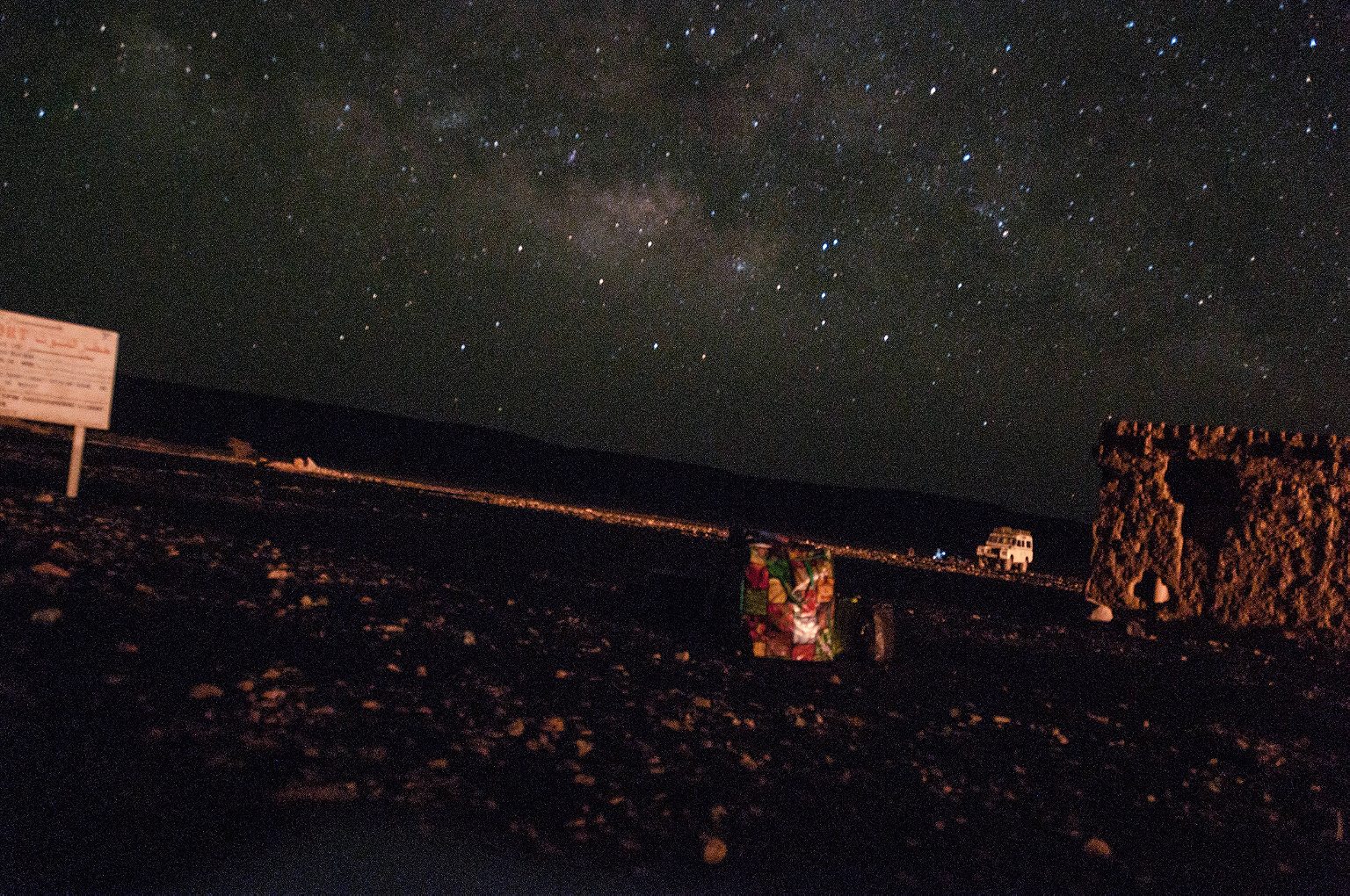
Mauritania is a strange place. Bridging the Maghreb and Sub-Saharan Africa, it was once a fairly bustling country, with busy caravan routes between Morocco and Timbuktu transporting salt, gold and slaves. It was the cradle of the Almoravid dynasty, a short-lived empire stretching from Mauritania to Islamic Spain, with its headquarters in a city it founded: Marrakesh. Later, Mauritania became a forgotten and neglected French colony. Finally independent, it is one of the poorest countries in the world, and slavery’s last stronghold: it only became illegal in 2007, and depending on who’s estimating, between four and 20 percent of its people are trapped in the country’s caste slavery system.
Previously known for hosting a part of the Paris-Dakar Rally, Mauritania was abandoned by the rally organizers and tourists alike after several terrorist attacks shook the country.
Today, more people visit the Lake District in a day than Mauritania in a year. You see decaying tourist infrastructure here and there, forgotten concrete stumps and grey skeletons of buildings, while everyone is assuring you that the country is safe, and please come back, will you come back to Mauritania? Tell your friends.
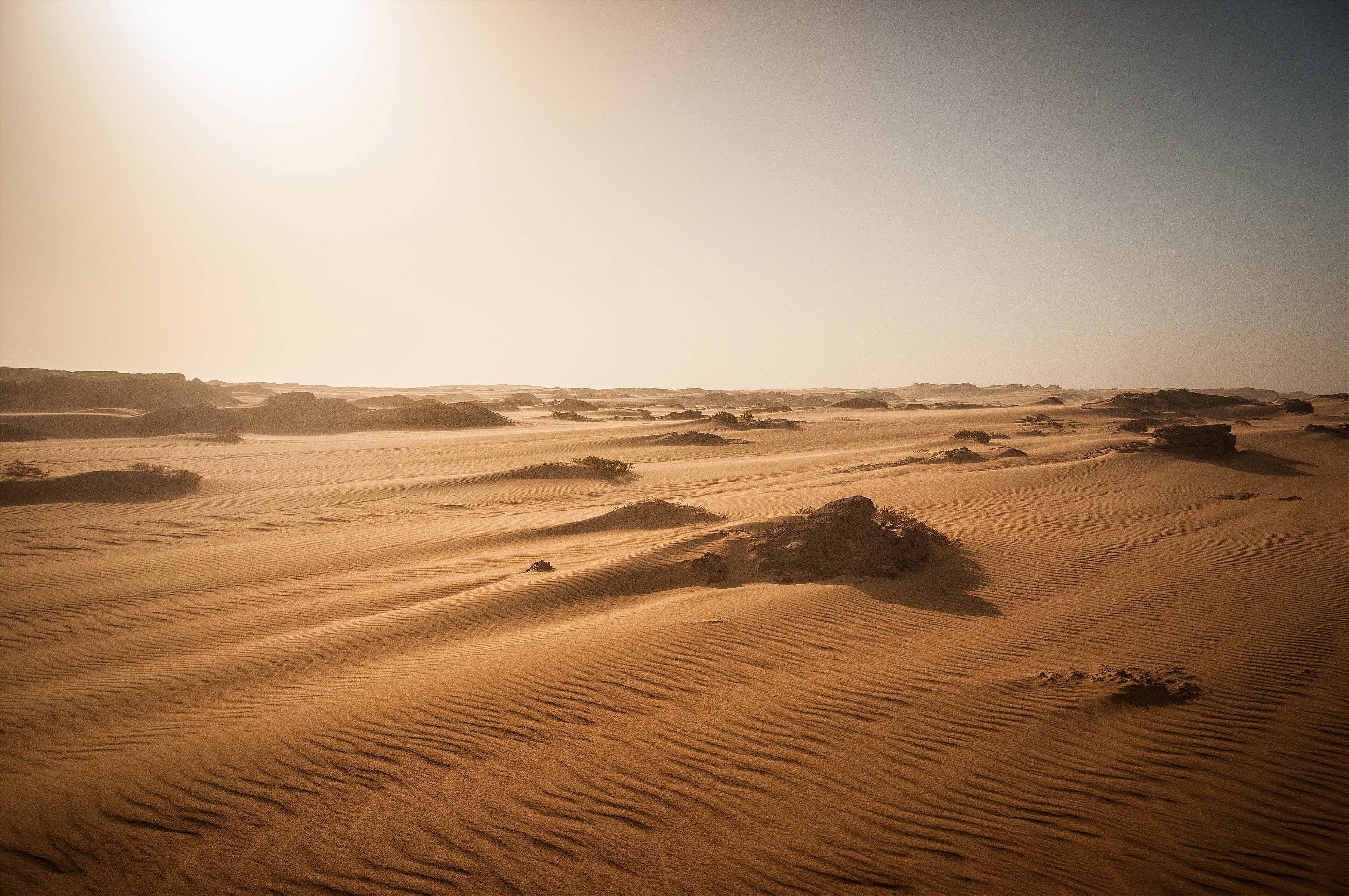
The country really is trying. We went through over 50 military or police checkpoints in eight days, not at all convenient, but installed there for our safety. People were kind. Children screamed with excitement, bonjour monsieur! One girl told me she loved me before disappearing among her giggling friends. In cities, they offered us rides when we were looking for something. More convincingly, there have been no attacks on tourists in recent years, which cannot be said of popular tourist destinations like Egypt, Tunisia or Turkey. There was one occasion we did have to bribe a police officer to get our passports back, but overall the negative reputation of the country is greatly exaggerated.
And none of that matters now, as the train begins to move with a violent jerk. We are riding in the merchandise wagons, which means there are no inspectors and no tickets to show. We frantically begin to dig holes in the iron ore with our bare hands so that the wind doesn’t blow us off. “Put your scarf on!” A suffocating dust storm commences. Coughing and mildly swearing, we continue to dig, and then fall exhausted in the shallow pits. It’s pitch black. The sky has never been so magnificent, and I’ve never been so dirty. But it’s surprisingly comfortable, refreshingly cold, and the train gently rocks me to sleep.
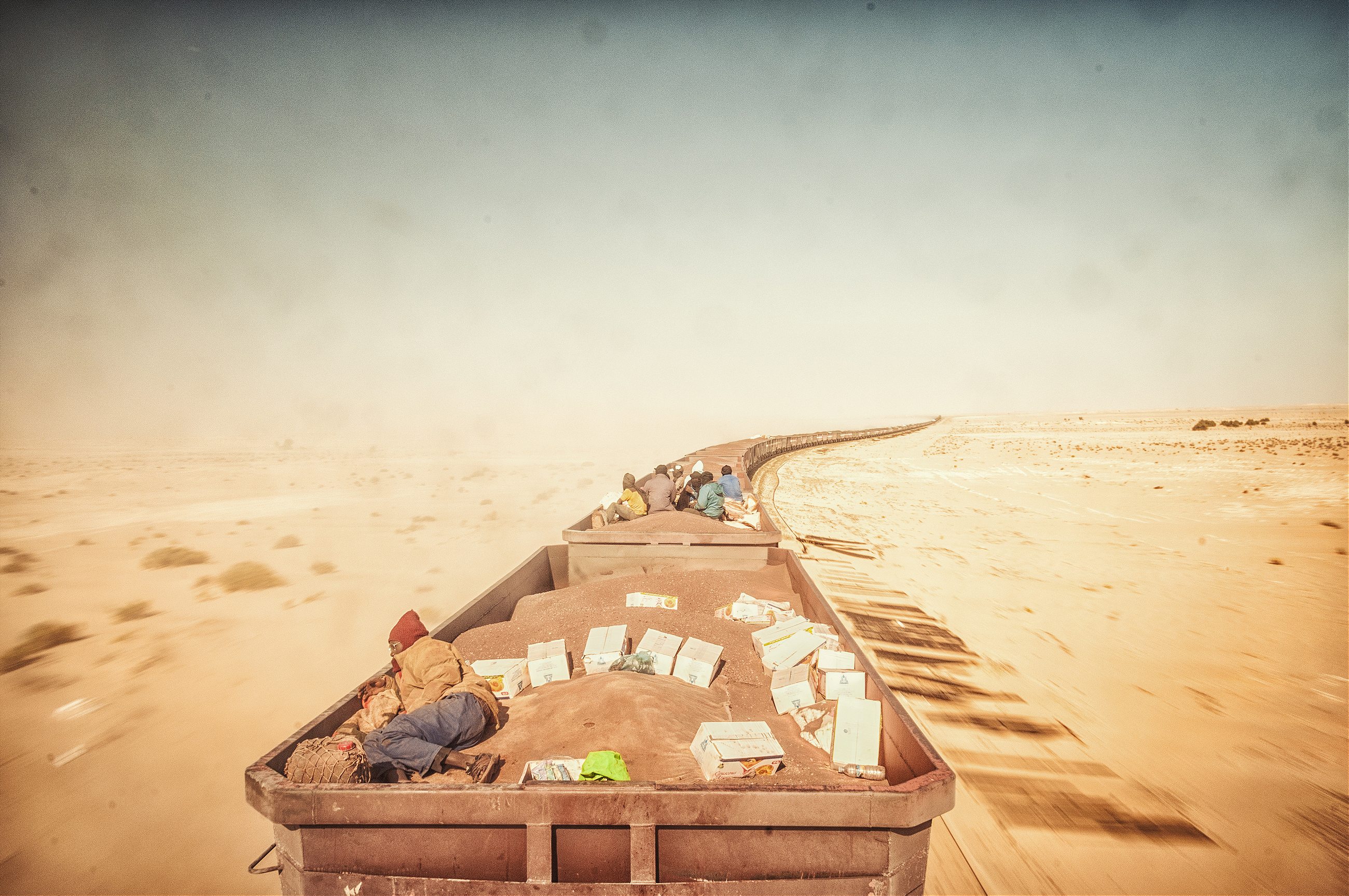
Later, when I wake up, the wind has become unforgiving. It’s painfully cold, so I begin to stuff my dirty underwear into my jumper and my hood, and put socks on my hands. Ammar will later say he was freezing too, but then stopped feeling anything altogether and thought he was dying. I do slightly panic when I don’t see him on his side of the wagon. But it turns out he’s just shifted down a bit, partially covered by sand and iron, and virtually indistinguishable from various bags traveling with us.
Even in the morning daylight, the train is so long I can’t make out its front. A friendly kick, and I find out that Ammar has also survived the freeze, which makes me happy, as he is my friend, not to mention the difficulties I would have to face had he died. The wind is moving the bags around us, making them look like they are alive. Soon enough, we see people crawling out of blankets, staring at us, yawning and stretching. We are as surprised to see them as they are to see us.
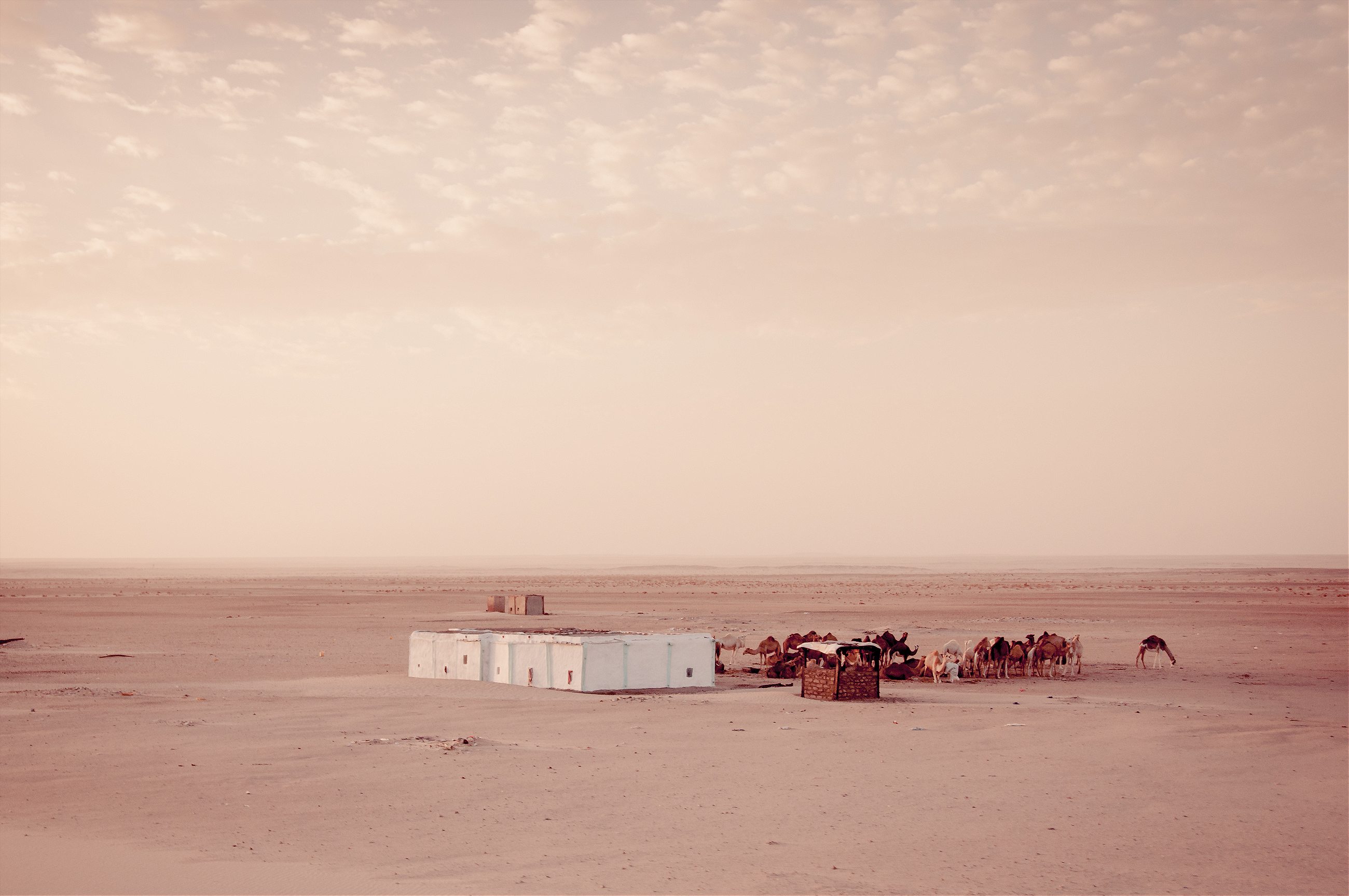
Iron is what keeps Mauritania going. The country is Africa’s second biggest producer of iron ore. But the train is also a free means of transport for people and their cargo, and we can now see cartons of pasta, rice, bottles of water and live goats emerge. The endless desert around us makes it hard to believe that this used to be an ocean once, but whales’ skeletons are still found in the Sahara. Nicknamed the White Man’s Grave, this desert amuses me less and less by the hour. We have no clue where we are, but I estimate it must be about six hours to our final destination, Nouadhibou, the coastal city famous for its ship graveyard, a small seal colony, and not much else.
The feeling of achievement is immense when far on the horizon we finally notice a thin blue line of the Atlantic Ocean. It doesn’t have the magnificence of the arrival at Mombasa on the so-called Lunatic Express, but it still is beautiful. As we approach the Cap Blanc peninsula, people slowly begin to prepare to disembark. We jump off, go to the best hotel Nouadhibou has to offer, to shower and stain the towels and floors with iron. The ore will still travel a few more kilometers, and then sail across the ocean to be purified, to have the phosphorus and sulphur removed, and ultimately to become steel.
